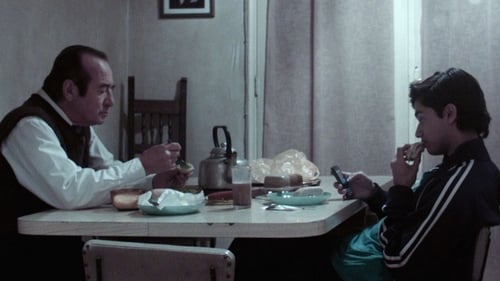
Executive Producer
Otro Sol is a group of real and invented characters trapped in a film. It is also a purgatory of retired thieves that takes place on the coast of the Atacama Desert. The film is circular and seeks to invent and verify the myth of Alberto Cándia, a Chilean international thief who stole the Cathedral of Cadiz in Andalucia in the late 1980s.

Producer
A dialogue between the collective and the personal, a living memory that combines the dreams and realities of the Haitian community residing in Chile. This dialogue is guided by the voice of Wilner Petit-Frère, a Haitian immigrant who observes and captures, in a print publication, the society where he ended up living in this stage of his life.

Executive Producer
Главный герой картины, управляющий фабрики манекенов Хуан, впервые в жизни сталкивается с бессмысленной и яростной гомофобией, когда его 18-летнего сына-гея Пабло избивают до полусмерти. Отсутствие свидетелей и дорогие медицинские счета заставляют Хуана покинуть тихую стабильность своей жизни навсегда и оказаться в мире, где существует дискриминация. Но все его усилия сойдут на нет, пока однажды ночью на улицах Сантьяго он не установит свои собственные правила для того, чтобы спасти сына.

Producer
Impressionist portrait of a landscape forged by tragedy. A ghostly wanderer among the vestiges of a story where 44 young soldiers and a sergeant were pushed to their deaths

Screenplay
Rafael Egaña (38) will soon be blind. With us, he makes the journey of the images that his father, an amateur photographer, has collected for more than 50 years. These images are memories, but what happens to them when vision is lost, do they disintegrate along with the visible world or do they become clearer because new ones can no longer be generated?

Editor
Rafael Egaña (38) will soon be blind. With us, he makes the journey of the images that his father, an amateur photographer, has collected for more than 50 years. These images are memories, but what happens to them when vision is lost, do they disintegrate along with the visible world or do they become clearer because new ones can no longer be generated?

Director
Julia and Sofia are two sisters who, due to their father's illness, are forced by their mother to go to the country, with their aunt Cristina and two children they do not know. Both girls feel alien to this grandiloquent place as well as to these relatives with whom they seem to have nothing in common. The stillness of the countryside, the dead times of summer and a house that seems frozen in time are opposed to the imminent collapse of the girls, who intuit that those days are only an illusion.






